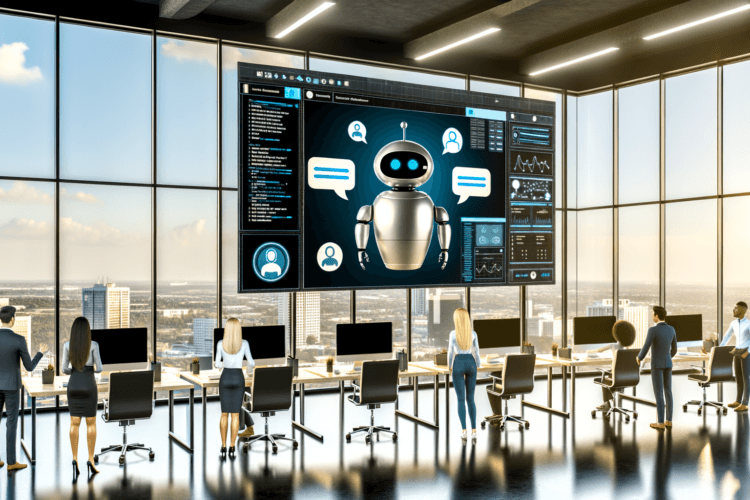
Introduction
Web development is a dynamic field that continuously adapts to new technologies and consumer demands. As the digital landscape evolves, staying updated with the latest trends and predictions in web development is crucial for developers, businesses, and technologists. This blog explores emerging trends in the web development arena, offering insights into the future technologies that will shape the online experiences of tomorrow. From advancements in artificial intelligence and machine learning to the adoption of progressive web apps and the rise of voice search optimization, we’ll dive deep into what’s next for the web world. Join us as we uncover the future of web development, ensuring you stay ahead in this ever-changing tech landscape.
Overview of Web Development National Trends
Importance of staying updated with emerging trends
In the rapidly evolving field of web development, staying updated with the latest trends isn’t just beneficial; it’s essential for survival and success. This constant evolution can mean the difference between a thriving business and a forgotten one. As technologies advance, so too do the expectations of users, who increasingly demand faster, more secure, and more interactive web experiences. For developers, this means continually learning and adapting to new tools, languages, and frameworks to stay on the cutting edge.
Overview of current trends in web development
Currently, the web development landscape is heavily influenced by several key trends. First, the adoption of responsive web design has become widespread, ensuring that web experiences are seamless across various devices, from desktops to smartphones. Secondly, API-first design is becoming standard as more devices need to integrate and communicate effectively. Finally, there’s a growing emphasis on user experience (UX) design, emphasizing speed, aesthetics, and ease of use, powered by technologies like CSS frameworks and JavaScript libraries, which are constantly being updated and refined.
Predictions for the Future of Web Development
Artificial Intelligence and Machine Learning
One of the most exciting predictions for the future of web development revolves around the integration of Artificial Intelligence (AI) and Machine Learning (ML). We can expect AI to transform the way websites are built and function, making them more adaptive and intuitive. AI could drive personalization engines that offer tailored content to users based on their behavior, location, and preferences. Additionally, AI-powered chatbots and virtual assistants will become more sophisticated, providing users with better, more human-like interactions.
Progressive Web Apps
Progressive Web Apps (PWAs) are set to redefine the user experience on the web. They are websites that feel and function like an app, providing a high-quality user experience irrespective of network condition or device. PWAs are designed to be fast, engaging, and reliable, with capabilities such as working offline, receiving push notifications, and accessing hardware features traditionally available only to native applications. As mobile usage continues to dominate web access, PWAs will become increasingly important for businesses wanting to offer superior mobile experiences.
Internet of Things integration in websites
The Internet of Things (IoT) has been making waves across various industries, and web development is no exception. The future could see websites becoming a central hub for IoT enabled devices. Imagine a scenario where your website can communicate with your coffee maker, starting it automatically as soon as you schedule a break on your online calendar. Or, consider a fitness website that syncs with your IoT-enabled sports equipment to provide customized workouts. The potential for IoT-integrated websites is vast and could dramatically alter how we interact with the physical world through digital platforms.
Impact of New Technologies on Web Development

The landscape of web development is continuously evolving, shaped significantly by the adoption of cutting-edge technologies. These innovations not only enhance the user experience but also redefine how developers construct websites and applications.
Virtual Reality and Augmented Reality
Virtual Reality (VR) and Augmented Reality (AR) are set to utterly transform how users interact with websites. VR immerses users in a completely digital environment, while AR enhances the real world by overlaying digital information onto it. Web developers are starting to integrate these technologies to deliver compelling and interactive user experiences. Applications range from virtual tours and 3D modeling to interactive learning and shopping experiences. Embracing VR and AR can increase engagement, offering users more dynamic and immersive content that significantly boosts a site’s attractiveness.
Voice Search Optimization
With the proliferation of AI assistants like Alexa, Siri, and Google Assistant, voice search is rapidly becoming a crucial element of web development. Websites optimized for voice search improve accessibility and enhance user experience, facilitating a hands-free method to interact with technology. For developers, this means prioritizing natural language processing and ensuring site content is conversational and easily accessible. As voice search algorithms continue to improve, the inclusion of structured data to help AI understand context will become even more vital.
Motion User Interface
A relatively new concept that is gaining traction is Motion User Interface (Motion UI). It is all about using fine-tuned animations and transitions to enhance a website’s storytelling, making the interaction more engaging and visually appealing. Thanks to advances in CSS and JavaScript technologies, implementing Motion UI is becoming simpler and more cost-effective, enabling developers to create rich, interactive web pages that attract and retain users’ attention more effectively.
The Role of Programming Languages in Shaping the Future
The development of programming languages and their frameworks plays a pivotal role in shaping the future landscape of web development. Their evolution dictates not only the possibilities in terms of website functionality but also how we approach web development as a whole.
Rise of JavaScript frameworks like React and Angular
JavaScript continues to be a powerhouse in web development, partly due to the robust frameworks like React and Angular. These frameworks simplify the process of building complex, interactive web applications by providing developers with powerful, ready-to-use code structures. React, for instance, helps in building fast and scalable front-end applications. Angular offers a comprehensive framework for building dynamic, single-page web applications efficiently. Their continued development and widespread use dictate much of what’s possible in modern web development, fostering richer, more interactive web experiences.
Introduction of WebAssembly for high-performance web applications
WebAssembly represents a significant breakthrough in web development, enabling higher-performance applications than ever before. This new standard allows languages like C, C++, and Rust to run on the web at near-native speed, opening the door to high-performance applications that were previously impossible in JavaScript alone. WebAssembly is particularly useful for applications requiring complex calculations, like video editing or large-scale graphical displays, broadening the scope of what web technologies can accomplish. Its adoption means web applications can now compete more directly with native applications in terms of speed and capabilities, significantly altering the landscape of web development.
These emerging technologies and programming advancements indicate a bright and dynamic future for web development, promising even more immersive, efficient, and engaging web experiences.
Enhancing User Experience in Web Development
Personalization through data-driven technologies
In the dynamic world of web development, personalization is rapidly becoming a cornerstone of user experience. With the influx of data-driven technologies, websites can now offer highly customized experiences tailored to individual user preferences and behaviors. For instance, machine learning algorithms analyze user data to suggest products, adjust content, or even modify site navigation to improve user satisfaction. This technology enables websites to not merely serve users but to anticipate their needs, elevating engagement and promoting loyalty. Key elements such as predictive search and personalized recommendations are just the tip of the iceberg. As we move forward, the integration of artificial intelligence in personalization strategies will become more refined and indispensable in creating immersive web experiences.
Importance of responsive design in the mobile-first era
The shift towards mobile-first design is not just a trend but a fundamental change in how users interact with websites. Responsive design ensures that a website looks and functions well on all devices, from desktops to smartphones. This adaptability is crucial for several reasons:
– It enhances user experience by providing a seamless interaction across different screen sizes.
– It improves the website’s search engine rankings as Google prioritizes mobile-friendly sites.
– It boosts the site’s accessibility, allowing users from diverse backgrounds with various devices to access the website without any hindrance.
Considering that over half of the global web traffic now comes from mobile devices, responsive design is no longer optional but a necessity in web development practices.
Challenges and Opportunities in the Future of Web Development

Accessibility and inclusivity in web design
As web technology progresses, so does the need for websites to be accessible and inclusive. Ensuring that a website is navigable and understandable for people with disabilities is not just an ethical obligation but also a legal requirement in many jurisdictions. Web developers must address a range of issues such as color contrast, keyboard navigability, and content readability to cater to everyone, including those with visual, auditory, or physical limitations. Tools and guidelines like the Web Content Accessibility Guidelines (WCAG) provide a framework for creating accessible web content. Embracing these accessibility practices not only broadens the reach of a website but also reflects a commitment to social responsibility.
Security concerns in a data-driven world
In an era where data breaches seem to occur with alarming regularity, security remains a towering challenge and opportunity for web developers. The more personalized the web experience becomes, the more sensitive data is collected, necessitating robust security measures to protect user information. Understanding and implementing advanced security protocols such as HTTPS, SSL certificates, and regular security audits are essential. Moreover, with regulations like GDPR and CCPAL impacting how data is handled, developers need to be well-versed in compliance as well as cybersecurity. The rise of technologies like blockchain offers promising solutions by providing decentralized and transparent data management systems, which could redefine security standards in web development. Addressing these security challenges head-on not only ensures legal compliance but also builds trust with the user—an invaluable asset in the digital age.
Conclusion
Web development is relentlessly advancing, driven by evolving technologies, user demands, and new business needs. As we’ve explored, from the rise of AI and machine learning to the increasing importance of voice and visual search, the landscape is rapidly changing. Staying informed and adaptable is key for developers, businesses, and users alike. By embracing these trends, professionals in the field can ensure they not only keep up but lead in the digital space. Keep experimenting, keep learning, and most importantly, keep coding!




